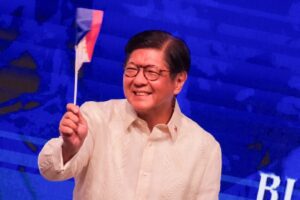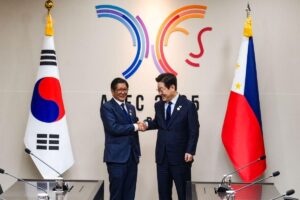The 32nd APEC Economic Leaders’ Meeting, hosted by South Korea under the theme “Building a Sustainable Tomorrow: Connect, Innovate, Prosper,” saw President Marcos Jr. actively championing the Philippines’ economic interests and seeking deeper regional integration.

1. Focus on Trade and Investment 📈
As Marcos stated, trade was the central focus. His participation aimed to push the Philippines as an open and reliable investment hub.
Investment Pitch: Marcos reaffirmed the Philippines’ readiness to host greater investments, highlighting the country’s strategic location, skilled workforce, and commitment to innovation-driven, inclusive economic growth. He urged the international business community to “Invest in the Filipino.”
Digitalization and Infrastructure: He encouraged APEC leaders to address gaps in energy and digital infrastructure investment, emphasizing the need for a “strong public-private collaboration” to achieve regional inclusivity and prosperity. The Philippines is actively pushing for digital transformation and accommodating more tech investments.
2. Alignment with Core APEC Priorities 💡

The Philippine agenda was aligned with Korea’s three APEC priorities:
Connect: Advancing trade and investment, and strengthening physical and digital connectivity.
Innovate: Focusing on digital innovation, including promoting AI-driven growth and tackling demographic shifts like aging populations. Marcos specifically urged APEC leaders to close the gender gap, calling it “smart economics” for sustained growth.
Prosper: Pursuing sustainable and inclusive growth, with Marcos emphasizing the need to empower Micro, Small, and Medium Enterprises (MSMEs) and ensure equitable access to digital services.
3. Diplomatic Importance and Takeaways
Marcos viewed the summit as a “high-stakes” meeting, recognizing that policy decisions made among major economies—particularly concerning global trade—would have ripple effects worldwide. His main takeaway was the acquisition of new ideas and insights into global economic trends that can be adapted and developed for national policy in the Philippines.
He also used the platform to advance the Philippines’ foreign policy goals, including strengthening ties with host Korea and conducting bilateral meetings, such as an agreement with Chile to finalize a free trade deal.





